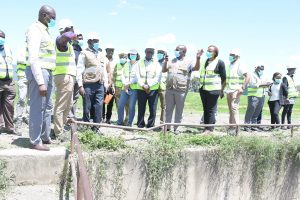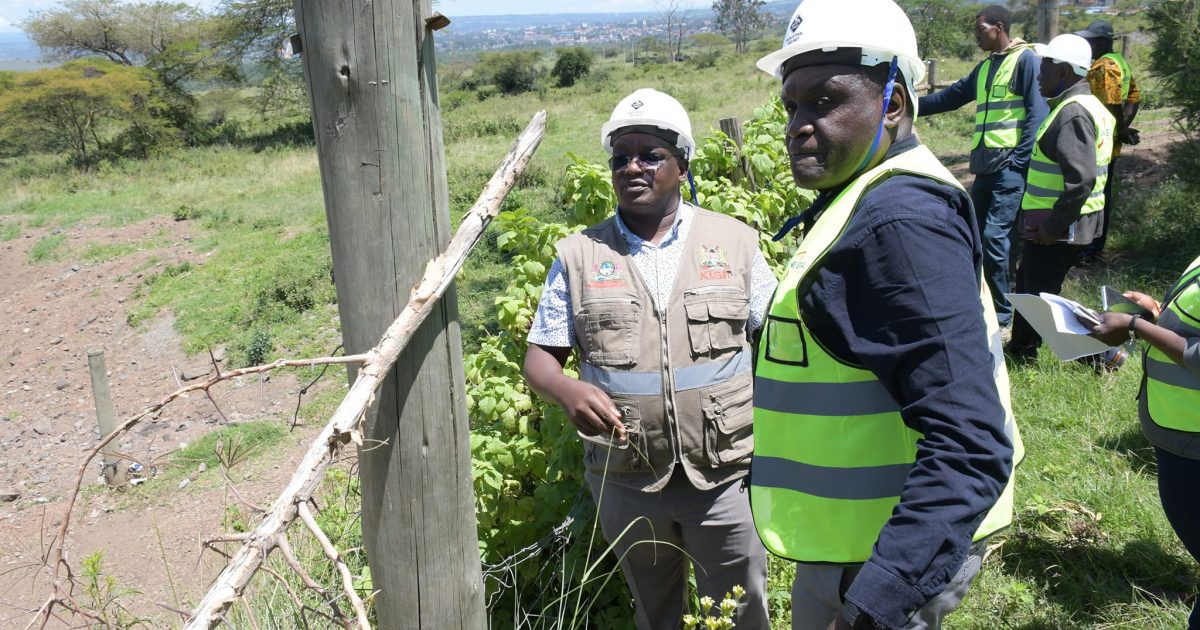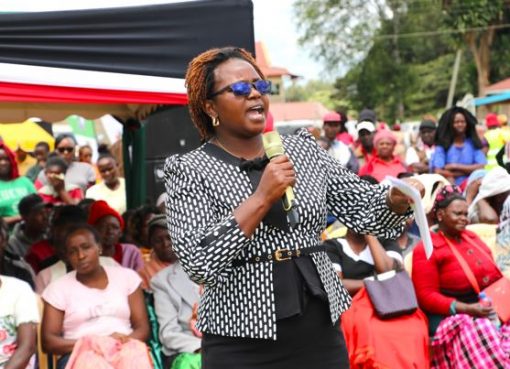The National County Coordinator for the Kenya Informal Settlement Improvement Project (KISIP), George Arwa, along with the County Executive Committee Member for Lands, Physical Planning, Housing, and Urban Development, John Kihagi, on Thursday led a team from the World Bank and French Development Agency (AFD) on a progress inspection visit to Kiamurogi, Nakuru East Sub County.
During the site visit, the team assessed various infrastructural projects related to the drainage in relation to their impact on local environmental conditions. The inspection highlighted the need for effective solutions to address these challenges and minimise any adverse effects on the surrounding area.
Both Mr. Arwa and Mr. Kihagi stressed the importance of addressing these environmental concerns promptly and effectively.
In a subsequent consultative meeting, Mr. Arwa urged the county team to form a dedicated committee to explore and recommend solutions. This committee would focus on devising strategies to both enhance the ongoing infrastructural interventions and protect against environmental degradation, particularly concerning siltation.
The establishment of this committee is seen as crucial for developing comprehensive solutions that balance development with environmental preservation.

To address the drainage challenges, the committee is expected to consider several solutions. These may include the implementation of erosion control measures, regular maintenance schedules, and the use of sustainable materials and techniques in construction.
The World Bank expressed their gratitude to the community for their feedback, which they termed as essential in ensuring that the drainage systems are both effective and environmentally friendly for sustainable development.
According to KISIP National Project Coordinator George Arwa More than 400 informal settlement schemes in the country are set to benefit from the over Sh31 billion in multilateral donor funding to provide low-cost housing and general infrastructural improvement, among other crucial amenities.
The funding has been given out by the World Bank ($150 million equivalent to Sh24.1 billion) and the French Development Agency (€43 million equivalent to Sh7.6 billion) and will address infrastructure, water, lighting, and social inclusion in 33 counties.
Arwa indicated that the upgrade designed by the World Bank seeks to enhance land tenure security and improve infrastructure and services such as roads, drainage, pedestrian walkways, and water connections.
The project further seeks to link beneficiaries to socio-economic opportunities and build the capacity of National and County Governments to develop and implement slum upgrading and prevention policies and strategies.
He noted that urban populations in developing countries such as Kenya are growing at a high rate. Adding that by 2020, Kenya had close to 7.6 million of the urban population living in slums, while in Sub-Saharan Africa, it is estimated that more than 230 million urban populations currently live in informal settlement areas. And the numbers keep on increasing on a daily basis.
The County Executive for Lands, Physical Planning, Housing, and Urban Development, John Kihagi, confirmed that the first phase of KISIP project Nakuru County received Sh429.7 million in grants from the World Bank that were used in improving the drainage systems, waste management, and tarmacking of roads in 8 slums and the installation of security lights.
Additionally, he said the slums that benefitted during the first phase included Kaptembwa, with a population of over 130. Others were Kivumbini, Kaloleni, Bondeni, and Kwa-Rhonda.
Kihagi said the KISIP project has transformed the livelihoods of Nakuru residents, especially those residing in the informal settlement areas, because they now have access to basic services such as water and drainage systems and improved security through the installed flood lights.
By Veronica Bosibori




